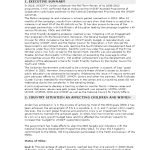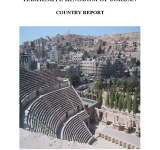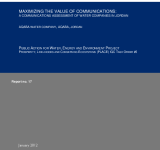والجودة
This report concerns the results of a survey on children’s literature and the promotion of reading in Palestine as represented by the West Bank and the Gaze Sector. Emphasis is placed on a number of axes regarding children’s literature;; including policies and legislation;; programs and institutions;; libraries;; elementary schools and universities;; and the publishing and distribution of children’s books. Upon analysis of the state of children’s literature in Palestine;; this report identifies certain trends regarding child culture. It also identifies a number of problems facing the promotion of reading among children;; including financial constraints;; the quality and availability of libraries;; and the overarching challenges influenced by Israel occupation.
This report concerns the results of a survey on children’s literature and the promotion of reading in Syria. Emphasis is placed on a number of axes regarding children’s literature;; including policies and legislation;; programs and institutions;; libraries;; elementary schools and universities;; and general information regarding children’s books. Upon analysis of the state of children’s literature in Syria;; this report identifies certain trends regarding children's literature. It also identifies a number of problems facing the promotion of reading among children and makes a number of recommendations for the development and improvement of children’s literature.
The annual report provides an overview to the country situation in regards to children and women and summary of the humanitarian and developmental assistance of the UNICEF Jordan Country Office (JCO) in 2010. The report includes Jordan’s progress in achieving the Millennium Development Goals in addition to the analysis of the organization’s projects. The projects focus on assisting Iraqi children in education and strengthening young child survival and development and adolescents’ participation and empowerment. The analysis of the report is based on the progress and assessment of the JCO’s projects in partnership with other UN agencies;; local agencies and government ministries. Some highlights of the 2010 annual report include the Ma’An campaign to end violence in school;; the UNICEF’s partnership with the government in supporting Iraqi children in gaining access to public education and a joint programme to develop a tracking system to monitor family violence and abuse cases with other UN agencies and Jordan’s National Council for Family Affairs.
The report was published from the World Health Organization/ United Nations Children’s Fund (WHO/UNICEF)’s pilot project to test a method for the rapid assessment of the quality of drinking-water in six countries;; including Jordan;; China;; Ethiopia;; Nicaragua;; Nigeria and Tajikistan. This assessment report aims to develop a tool that would support WHO/UNICEF’s joint program in strengthening the monitoring efforts of the global access to safe drinking water. The analysis of the report is based on the water samples and statistical data that were collected from 1600 drinking water supply sites in 67 clusters. The report finds that drinking water quality is generally high in the distribution network of Jordan and national standards for bacteria complies with the WHO guideline values. It also identifies the sanitary risk factors for Jordanian water supplies including the presence of sewer lines;; old pipes and failure to properly maintain household storage tanks.
The report is based on the study designed to conduct a communications assessment of Aqaba Water Company;; one of the key water utilities in Jordan and to examine how its communications department collaborates with other areas of the organization. As part of the Public Action for Water;; Energy and Environment Project (PAP);; a public education and behavior change communication program developed to support USAID’s technical and policy investments in the Jordanian water and energy sectors;; the report finds that the effective communications can save the utility money by improving operations;; increasing efficiencies and reducing customer complaints. The report suggests that the strategic communications can be the key to a sustainable future for the kingdom during the times of critical resource constraints and presents some guiding principles and recommendations for the Aqaba Water Company’s communication efforts.





